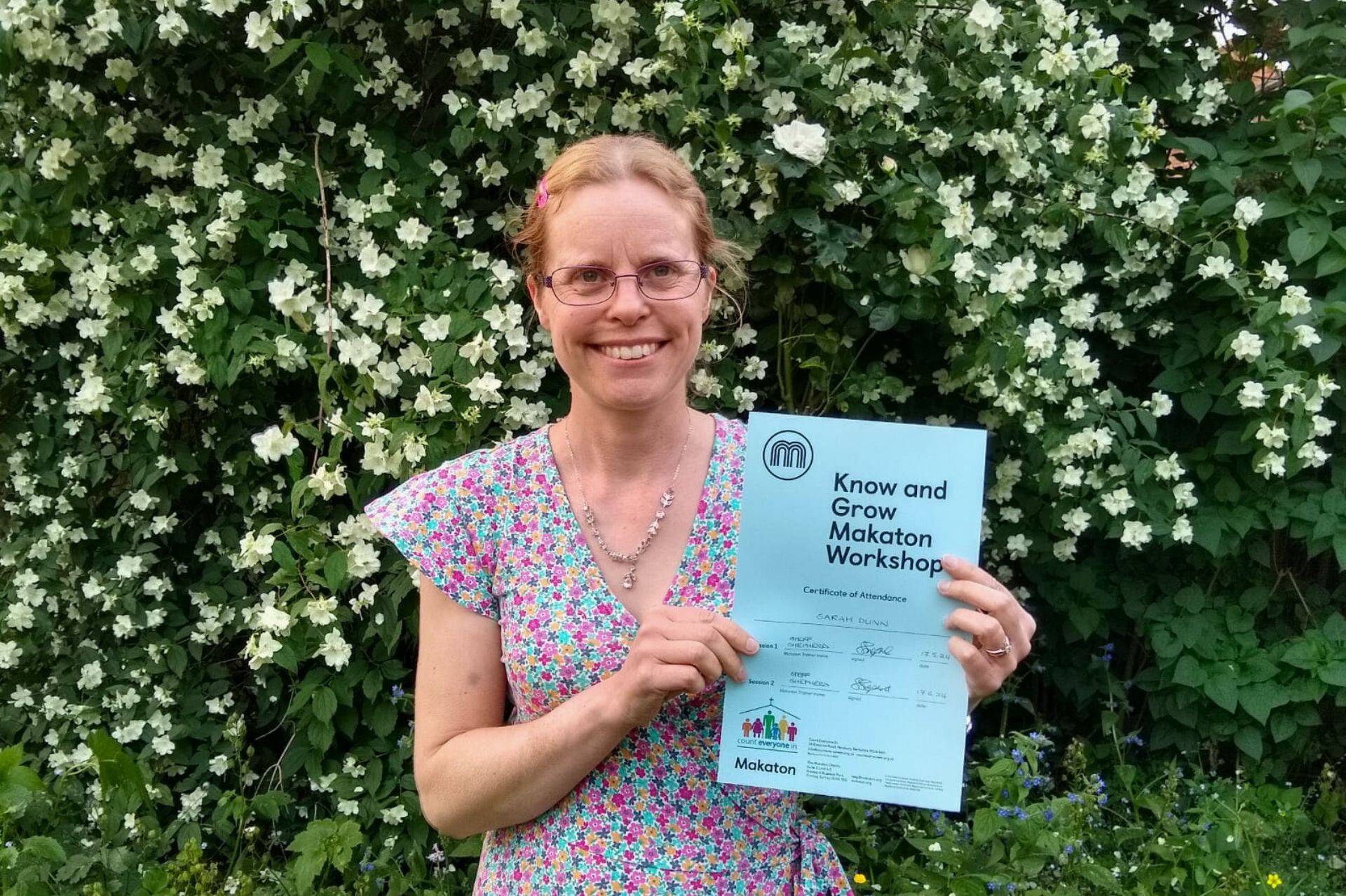Sarah went from using Makaton for a few songs in children and family groups to using it in most areas of her ministry after completing the Know and Grow Makaton Workshop.
The Makaton language programme uses symbols, signs and speech to enable people to communicate. Often used in contexts with children and adults who find it challenging to understand speech and to express themselves. Compared to British Sign Language (BSL), which is a complete language, Makaton has adapted a number of BSL signs to use alongside spoken word and symbols.
Sarah Dunn, the Children & Families Worker at St Peter’s Church in Hersham, taught herself and had used Makaton when her children were babies, “Their first 'words' were signs, so I knew from experience how useful it was with young children and that many children had the motor skills to sign before the ability to speak.”
When she stepped into her role at St Peter’s, Sarah was encouraged by the suggestion of signing actions to children’s songs at a Diocesan School Assembly training session. Sarah reflects, “Often adults feel a bit embarrassed doing actions but if the actions are signs, they are much more likely to join in, as it is another language.”
She started using the limited signs she’d learned on YouTube for songs sung at St Peter’s Thursday Pre-school Praise group. From there, she started using Makaton in the church’s God and Friends group for primary school ages. Eventually, she introduced the whole church congregation to Makaton through all-age worship songs.
Realising her Makaton vocabulary was limited, Sarah seized the opportunity to improve her skills by attending the Know and Grow Makaton Workshop, which she heard about in the Diocese of Guildford’s Children, Youth & Families (CYF) newsletter.
 “The day at Church House Guildford was really fun.” Says Sarah. “Steff Shepherd, who led the session, opened a conversation about the theology of the signs and how we could use them in our contexts. It was great to learn the faith-specific signs that were missing from the YouTube tutorials and small corrections on the things I was getting wrong.”
“The day at Church House Guildford was really fun.” Says Sarah. “Steff Shepherd, who led the session, opened a conversation about the theology of the signs and how we could use them in our contexts. It was great to learn the faith-specific signs that were missing from the YouTube tutorials and small corrections on the things I was getting wrong.”
Following the workshop, Sarah began using Makaton in many more aspects of her ministry. She now confidently uses signs in school assemblies, church notices and helped her church learn to sign the Lord’s Prayer and the Grace in their Sunday services.
It has also helped Sarah on a personal level, “It has given me a new worshipping style as I can now sign as I sing lots of hymns and not just children's songs! Using Makaton has also been helpful when I've lost my voice or am in a noisy room and I can't hear people well.”
“Makaton is expressive as well as useful.” Says Steff Shepherd, Makaton Tutor and Voluntary Inclusion Advisor for Young People for the Diocese. “If you’re going to use actions in a song or a service then use signs that mean something. This means your church’s repertoire becomes consistent and Makaton users visiting the church will feel welcome and included.”
Learning Makaton has helped Sarah engage children and adults in a new way and she encourages those working with children and families to give it a go. “Think about when you might use Makaton and what you would like to say. Have a go at learning the signs yourself first, so that it's not completely new, and take it from there.”
“It’s great to see Sarah take the initiative to have taught herself,” Steff adds. “Thankfully the YouTube videos she used didn’t teach her too many bad habits, but you need to be careful to use Makaton-accredited tutor videos when teaching yourself.” If you wish to teach yourself Steff recommends Makaton with Lucinda to get you started.
Contact Steff Shepherd if you want to find out more about the Know and Grow Workshop. Steff also teaches Makaton qualifications levels 1-4 if you wish to take your Makaton further.